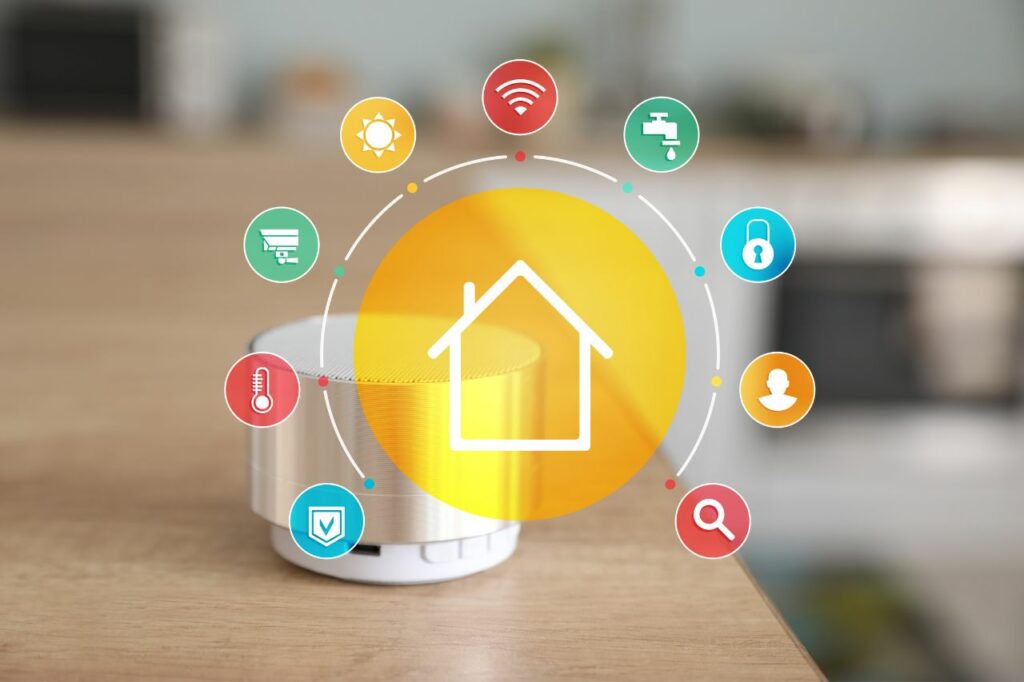The popularity of smart home devices has grown because they provide security, energy efficiency, and convenience. However, with so many options on the market, choosing the right devices for your needs can be overwhelming. This guide will help you understand what to look for when selecting smart home devices, so you can create a connected and efficient home that fits your lifestyle.
Understand Your Needs

The first step in choosing the best smart home devices is to understand your needs. Think about what you want to achieve with your smart home setup. Here are some common goals and the types of devices that can help you achieve them:
Security
If security is your primary concern, consider devices like smart locks, security cameras, and video doorbells. These devices can help you monitor and protect your home, even when you’re not there.
- Smart Locks: Replace your traditional locks with smart locks that you can control from your smartphone. Look for locks with features like keyless entry, remote access, and integration with other smart home systems.
- Security Cameras: Choose cameras that offer high-resolution video, night vision, and motion detection. Some cameras also have two-way audio, so you can communicate with anyone on your property.
- Video Doorbells: These devices combine the features of a doorbell and a security camera, allowing you to see and speak to visitors from your smartphone.
Convenience
For those looking to make their daily routines more convenient, smart speakers, smart plugs, and smart lighting can be great additions.
- Smart Speakers: Devices like Amazon Echo and Google Nest allow you to control other smart devices with your voice, play music, check the weather, and more. Consider the ecosystem you’re already invested in, like Amazon Alexa or Google Assistant.
- Smart Plugs: These plugs can turn any regular appliance into a smart device. You can control them from your smartphone or through voice commands, making it easy to automate your home.
- Smart Lighting: With smart bulbs, you can control your lights remotely, set schedules, and even change colors. Look for bulbs that are compatible with your existing smart home ecosystem.
Energy Efficiency
To save energy and reduce your utility bills, smart thermostats and smart appliances are excellent choices.
- Smart Thermostats: Devices like the Nest Learning Thermostat or the Ecobee Smart Thermostat can learn your schedule and adjust the temperature accordingly. They can also be controlled remotely, so you can manage your home’s climate from anywhere.
- Smart Appliances: From refrigerators to washing machines, many appliances now come with smart features. These can help you monitor energy usage and even diagnose problems before they become serious.
Compatibility
When selecting smart home devices, it is critical to consider compatibility. Many devices work within specific ecosystems, such as Amazon Alexa, Google Assistant, or Apple HomeKit. To ensure guaranteed compatibility, follow these guidelines:
- Check Compatibility: Before purchasing a device, make sure it works with your existing smart home system. Most product descriptions will list compatible platforms.
- Stick to One Ecosystem: For a seamless experience, try to stick to one ecosystem. Mixing devices from different ecosystems can lead to compatibility issues and make your smart home harder to manage.
- Consider Future Expansion: Think about how you might expand your smart home in the future. Choose devices that can grow with your needs and integrate with new technologies as they become available.
Ease of Use
Having a smart home should simplify your life, not add to its complexity. When selecting devices, consider their ease of use:
- User-Friendly Apps: Look for devices with intuitive and user-friendly apps. The app should allow you to control the device easily, set schedules, and receive notifications.
- Voice Control: Devices that support voice control can be much more convenient to use. Check if the device is compatible with voice assistants like Amazon Alexa, Google Assistant, or Siri.
- Installation and Setup: Some devices are easy to install yourself, while others may require professional installation. Consider your comfort level with DIY projects and choose devices accordingly.
Privacy and Security
Smart home devices can collect a lot of data about your daily life, so it’s important to consider privacy and security:
- Data Encryption: Look for devices that use strong data encryption to protect your information.
- Privacy Policies: Read the privacy policies of the devices and companies you choose. Make sure they have a good reputation for protecting user data.
- Security Features: Choose devices with robust security features, such as two-factor authentication and regular software updates.
Budget
Smart home devices come in a variety of prices. It’s important to set a budget and find devices that offer the best value for your money:
- Prioritize Your Needs: Focus on the devices that will have the most impact on your life. You don’t need to buy everything at once; start with the essentials and expand as your budget allows.
- Look for Deals: Look out for promotions and discounts. Smart home devices often go on sale during major shopping events like Black Friday and Prime Day.
- Consider Long-Term Savings: Some devices, like smart thermostats and energy-efficient appliances, can save you money in the long run by reducing your energy bills.
Also Read: Top 5 Technology Trends Transforming Industries
Popular Smart Home Devices
You should think about the following well-liked smart home devices:
Amazon Echo Dot
The Amazon Echo Dot is a compact smart speaker that uses Amazon’s Alexa voice assistant. It’s a great entry-level device for controlling other smart home devices, playing music, setting timers, and more.
Google Nest Hub
The Google Nest Hub is a smart display that integrates with Google Assistant. It can control other smart devices, display photos, show weather updates, and even play YouTube videos.
Ring Video Doorbell
The Ring Video Doorbell lets you see and speak to visitors at your door from your smartphone. It offers motion detection, night vision, and cloud video recording.
Philips Hue Smart Bulbs
Philips Hue smart bulbs allow you to control your lighting from your smartphone or voice assistant. You can change colors, set schedules, and even sync them with music or movies.
Nest Learning Thermostat
The Nest Learning Thermostat learns your schedule and adjusts the temperature automatically. It can be controlled remotely and helps you save energy by optimizing your home’s climate.
Arlo Pro 3 Security Camera
The Arlo Pro 3 offers high-resolution video, night vision, and two-way audio. It’s a great option for monitoring your home and ensuring your security.
The Bottom Line
Choosing the best smart home devices for your needs involves understanding your goals, ensuring compatibility, considering ease of use, prioritizing privacy and security, and sticking to your budget. By taking these factors into account, you can create a smart home that enhances your lifestyle, provides peace of mind, and saves you time and money. Start with the essentials, expand as needed, and enjoy the benefits of a connected home.



